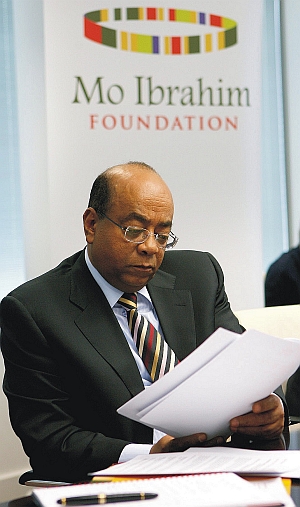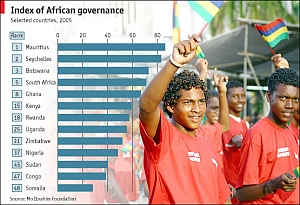Mo Ibrahim Prize and the Plight of African Democracy

 |
| Dr Mo Ibrahim Photo courtesy |
Democracy, as the entire politics, is a popularity contest. You win the people's hearts; you get their vote. But as Plato says: bud guys do not always play by the rules, if they are not popular, they will always come up with various strategies to cling to power.
The consequences of such situations are dire and it is always the innocent people that are on the receiving end. It is this side of politics that gave birth to apartheid in South Africa. The minority white government had to discriminate against the black majority as a way of holding onto power. Zimbabweans have suffered both under Robert Mugabe and the international community because they dared to think differently.
This is why I dread politics. I only talk about it because, as Peter Tosh, a reggae singer pointed out: "we suffer the consequences."
A number of factors make leaders in Sub-Saharan Africa to cling to power. Among them is greed and corruption. Once in power for example, leaders tend to indulge in so much corruption that they are afraid of prosecution once out of office. Given the corruption trials that ex-leaders in this region have undergone, this theory is carries much weight. Examples include Fredrick Chiluba of Zambia who was recently acquitted of corruption charges by a Zambian high court despite having been found guilty of the same charges by a London court in 2002. Malawi's ex-president Bakili Muluzi has a corruption case pending. One would not be surprised that these two men also hold a similar record of trying to change their respective constitutions to allow themselves to continue as presidents when they had served their terms.
When these two men failed to change their respective constitutions, they both hand picked their successors. The late Levy Mwanawasa in Zambia and Bingu wa Mutharika in Malawi. Again, the two ex-leaders were ensuring their safety once out of power, but the opposite happened.
 |
| IAG: Winners celebrate Photo courtesy |
The Economist observes that this year alone, Sub-Saharan Africa is scheduled to hold twelve elections, there will be a total of seven elections next year and by 2014 nearly every country will have had elections. The Economist's analysis is that these elections only change the elite at the top, as the case of African National Congress in South Africa. The same is the case in Malawi, there are politicians at the top that have served in every administration, swapping portfolios. This begs a question: what is the point in elections when they hardly change anything?
Mo Ibrahim has had to defend himself against allegations that the Mo Ibrahim Prize bribes leaders to do what they are supposed to anyway by arguing that the critics "are failing to take into account how central governance and leadership are for Africa's development". He points out that while in Europe leaders retire and go on to hold different roles or give speeches for a fee, there is nothing to do for African leaders.
A very interesting point indeed! Perhaps that is why African leaders are never the ones to retire. On the other hand, it raises an interesting point on the suitability of western-style democracy in Africa. Perhaps the system is not as compatible on both ends of the world as the current models want us to believe. Which way for African democracy then?
By Jimmy Kainja.
Jimmy Kainja, a Malawian national, is currently pursuing a Masters of Research (MRes) degree in Media and Communications at
